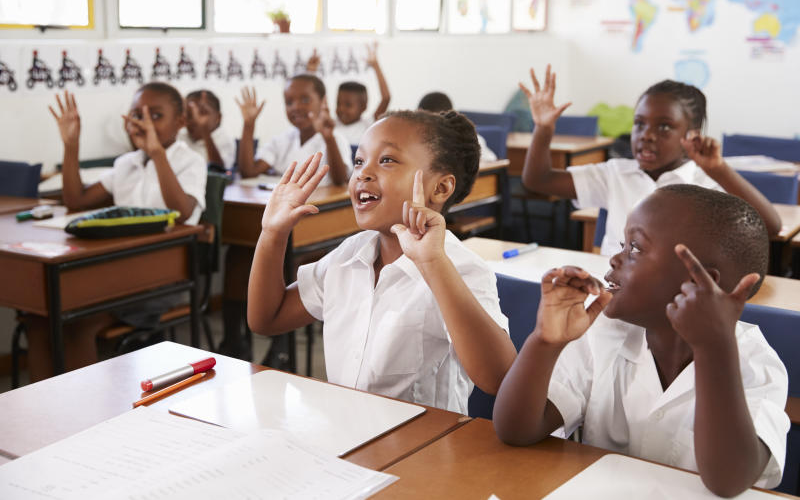For 38-year-old Esther Achieng’, a mother of three in Meru, the school reopening season is always a balancing act.
“The joy of seeing them back to school is real,” she says, “but so is the pressure. Uniforms are expensive, books are never enough, and school fees hang over your head like a cloud. But when I walk my children to school on that first day, I also feel pride. It is a small victory,” says the mother of three boys and a girl.
In Wote, Makueni, Ambrose Kilonzo, a father of four, has found a creative way to make the back-to-school crisis and shopping less stressful.
“I turn it into a father-child fun-day out,” he laughs. “We go to Gikomba or Eastleigh to look for affordable shoes, then grab chips and chicken. It helps my kids see the positive side of preparation rather than just hearing me complain about money.”
For single parents, the weight of transition can feel heavier.
In Isiolo, Halima Abdi, who sells vegetables at the market, says her daughter’s anxiety mirrors her own: “She gets stomach aches every time schools open. I realised it is because I also get tense about fees and her performance with worries of if she will perform well to joint senior school. So now I try to talk to her about it openly, instead of just keeping quiet.”
Family coach, Catherine Mugendi says children also live this season intensely.
“Sometimes, they are affected if they are in boarding schools as they know they will miss their families, friends, relatives or their playmates,” she says.
Nine-year-old Brian Utuoma confesses, “I miss my parents, siblings and friends, but most of all, I hate waking up early.”
Thirteen-year-old Grace Mwololo, who joined junior secondary this year, shares another layer.
“I get scared of meeting new teachers. Sometimes I feel like I won’t understand the lessons, but despite all this anxiety, tension and stress, I have learnt from my Sunday school teacher that these tensions are not good for me, so I focus on the positive. I am excited because I got new shoes this term,” she says with a smile.
For little ones in nursery and lower primary, transitions are less about academics and more about belonging. As one six-year-old Citam Ngong school, puts it, “I just want to see if my friend Amina is still in my class.”
Child psychologist David Mutua says transitions such as back-to-school mark “psychological thresholds”: “A child moving from home routine to school routine is experiencing change at multiple levels: emotionally, physically, socially, and mentally, and how parents handle this transition can set the tone for a child’s confidence and attitude towards school,” he explains.
Teachers echo this view. Mark Kiprono, a primary school headteacher in Eldoret, says children who return after long holidays often take one to two weeks to fully settle.
“Some struggle with concentration, others are homesick, and some are anxious about performance. The best support comes when parents prepare them gradually by establishing sleep routines, reading, and conversations about what to expect,” says Kiprono
Back-to-school is not only about children. Parents themselves undergo a shift. After weeks of relaxed mornings, late-night movies, or flexible work schedules, they must adapt back to the “5 am grind.”
For some, it is a financial burden: juggling school fees, transport costs, and extracurricular expenses. For others, it is emotional – letting go as children step into independence.
“Parents should give themselves grace too, and it is okay to acknowledge your own anxiety. When parents show calm confidence, children mirror that energy,” says Dr Mutua.
School opening season is more than a private family affair. It is a communal ritual. Matatu stages are busier, bookshops are full and tailors work overnight to repair uniforms.
However, beyond the bustle, schools also represent safe spaces for children. Teachers, peers, and activities form part of the village that raises a child. Parents who collaborate with schools – attending meetings, checking homework, and listening to teachers, help children thrive.
While transitions are rarely easy. They are bridges from the comfort of the familiar to the promise of growth. But with preparation, empathy, and support, both parents and children can walk across with confidence.


